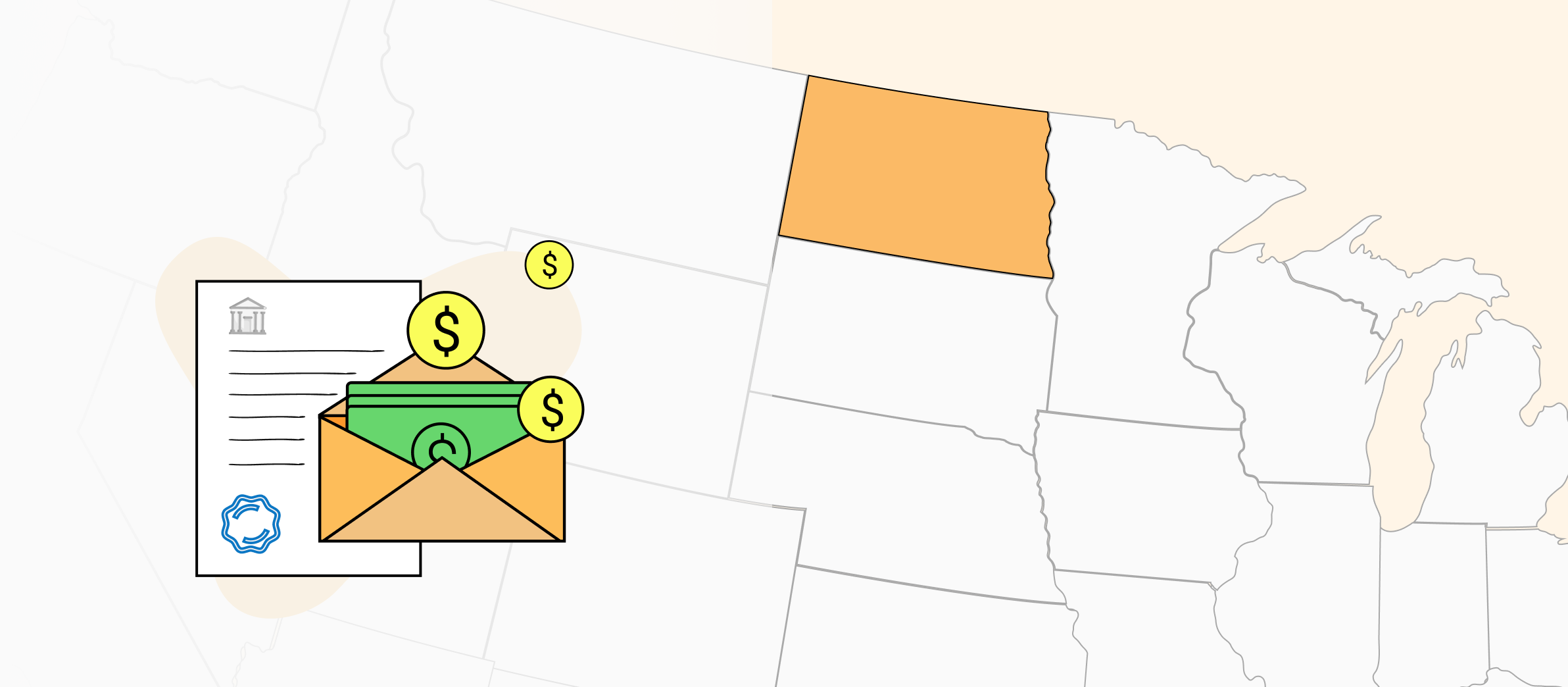The average cost of an eviction in North Dakota for all filing, court, and service fees is $190. Eviction cases shall be filed in District Court where the dwelling unit is located.
| Fee | District |
| Initial Court Filing | $80 |
| Summons Service | ~$30+ |
| Writ of Execution Service | $30 |
| Writ of Execution Enforcement | $50 |
These filing, court, and service fees do not include outside costs such as legal fees or post-eviction fees (i.e., locksmith fees, storage costs for a tenant’s abandoned property, cleaning service fees, repair costs, or advertising costs for a vacant dwelling unit).
1. Initial Court Filing Fee
In North Dakota, if the eviction notice expires and the tenant remains on the property without correcting the issue, the landlord may file an eviction lawsuit (“Forcible Detainer”) with the court the following business day. The filing fee for an initial Forcible Detainer is $80.
2. Summons Service Fee
Once a Complaint is filed in North Dakota, the court will issue a Summons. The Summons is the tenant’s official notice of an eviction lawsuit and contains important information (i.e., when and where to appear in court). The landlord must arrange for a process server to deliver the Summons to the tenant.
The Summons service fee varies by process server. For example, a sheriff or constable may charge $30, plus incurred costs of postage. [ttip number=’1’icon=’popover-balance’] However, a private process serve can charge more.
3. Writ of Execution Service Fee
In North Dakota, if the court rules in favor of the landlord, the court shall issue a Writ of Execution. The writ is the tenant’s final notice to vacate the premises.
A North Dakota sheriff must serve the Writ of Execution to the tenant. They shall charge a service fee of $30. [ttip number=’2′ icon=’popover-balance’]
4. Writ of Execution Enforcement Fee
In North Dakota, if a tenant remains at the premises after the writ expires, a sheriff or constable may execute the writ by removing the tenant from the premises.
They can charge a fee of $50 [ttip number=’3′ icon=’popover-balance’] to execute the Writ of Execution. Once the writ is executed, the sheriff shall restore possession of the property to the landlord.
Sources
- 1 N.D. Cent. Code § 11-15-07 (2021)
-
The sheriff shall charge and collect the following fees on behalf of the county:
1. For serving a summons… in addition to the
actual incurred costs of postage and long-distance telephone calls a total of thirty
dollars for each person served. - 2 N.D. Cent. Code § 11-15-07 (2021)
-
The sheriff shall charge and collect the following fees on behalf of the county:
1. For serving a…writ of execution…and making a return thereon… - 3 N.D. Cent. Code § 11-15-07 (2021)
-
The sheriff shall charge and collect the following fees on behalf of the county:
… For levying or executing any writ, fifty dollars…

